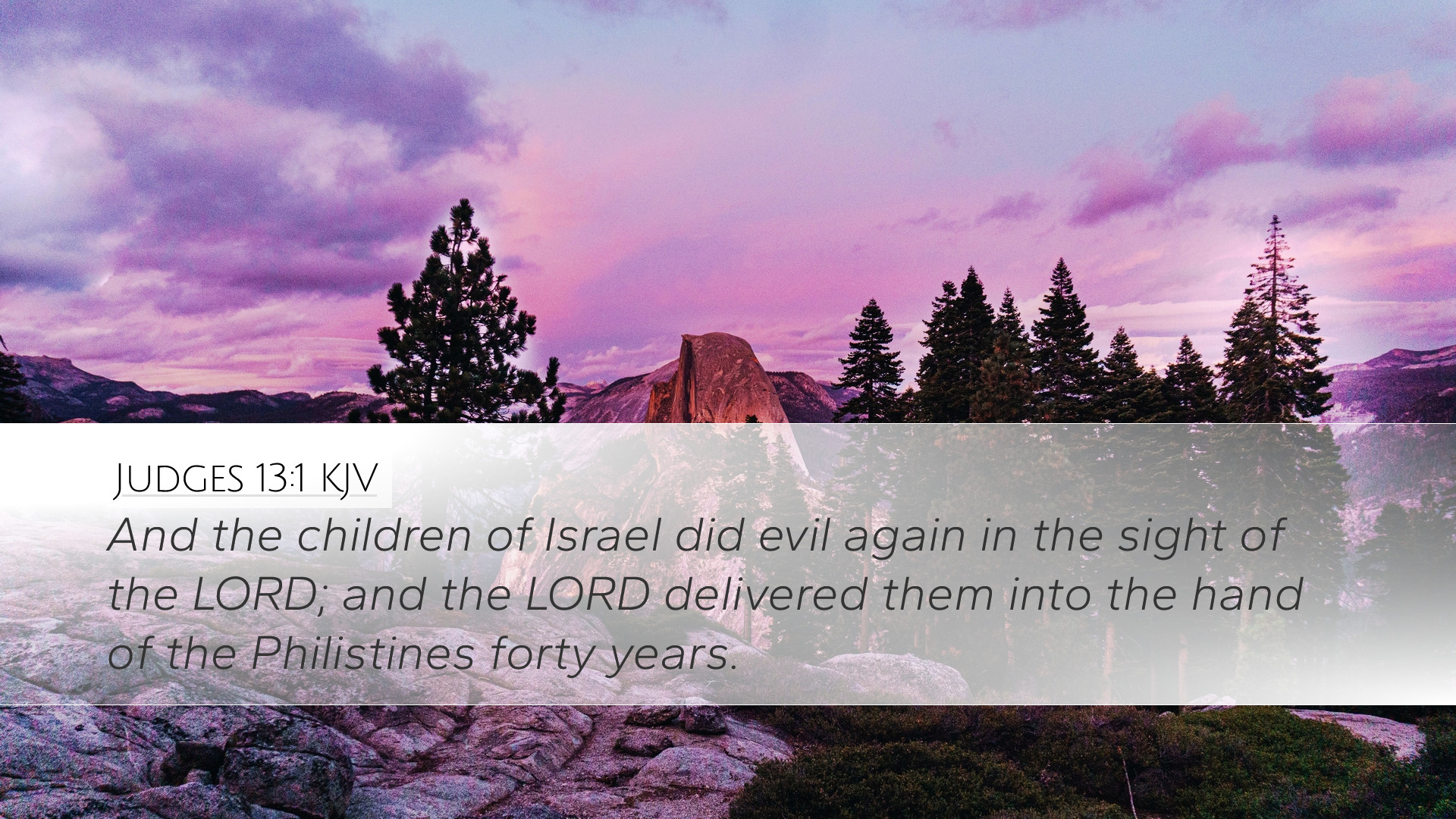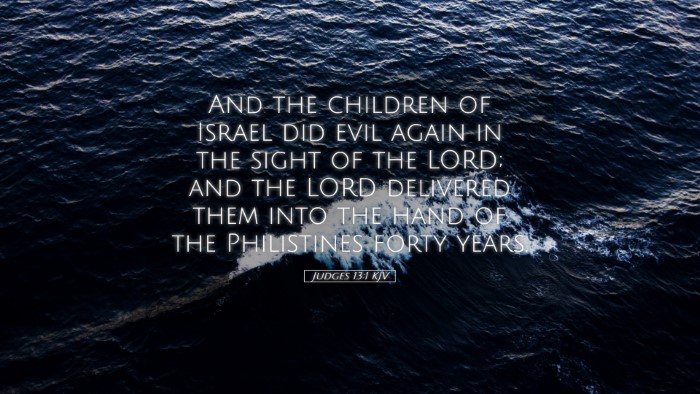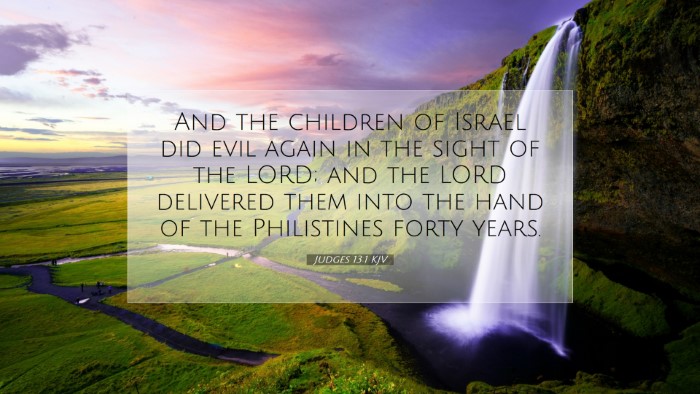Bible Commentary on Judges 13:1
Judges 13:1 states, "And the children of Israel did evil again in the sight of the Lord; and the Lord delivered them into the hand of the Philistines forty years." This verse serves as a poignant reminder of the recurring cycle of sin, punishment, and deliverance that characterizes the history of Israel in the Book of Judges.
Overview and Context
The Book of Judges covers a turbulent period in Israel's history, marked by a lack of centralized leadership and moral decay. Following the death of Joshua, Israelite tribes repeatedly fell into sin, leading to oppression by surrounding nations. The theme of this cycle is clearly illustrated in this initial verse of chapter 13.
The Nature of Israel's Sin
Israel’s Sinfulness: The phrase “did evil again in the sight of the Lord” emphasizes the deliberate nature of Israel’s disobedience. Commentators like Matthew Henry note that this reflects not just occasional lapses but a systemic return to idol worship and the practices of Canaanite peoples, which was a direct violation of God's commandments.
Spiritual Implications: This verse indicates a serious spiritual decline. Albert Barnes points out that Israel’s propensity to sin stems from a failure to fully possess the land and thus embrace the surrounding culture, leading to a continued flirtation with idolatry which eventually results in divine judgment.
Consequences of Sin
Divine Judgment: The verse clearly states that God “delivered them into the hand of the Philistines.” This serves as a key theological point regarding divine justice. Adam Clarke emphasizes that such deliverance is not random but serves as divine pedagogy aimed at leading the Israelites back to repentance.
Duration of Oppression: The mention of "forty years" symbolizes a significant period of judgment. As noted by Matthew Henry, this length of time signifies both the seriousness of Israel's offense and the patience of God in dealing with His people.
Theological Themes
-
The Cycle of Sin and Redemption:
This verse sets the stage for the cyclical theme that dominates Judges. As highlighted by Albert Barnes, the narratives illustrate humanity's tendency to forget God's deliverance and slip back into sin, necessitating divine intervention.
-
The Sovereignty of God:
The deliverance into the hands of the Philistines is a sober reminder of God's sovereignty. Adam Clarke points out that even in judgment, God is directing the affairs of nations and peoples for the ultimate good of His people.
-
The Call for Repentance:
Implicit within the narrative is a call for repentance. The suffering under Philistine oppression would ultimately lead the Israelites back to God, highlighting His gracious invitation to return.
Application for Today
The themes present in Judges 13:1 resonate deeply within contemporary contexts. They reveal the nature of human sinfulness, the necessity of accountability, and the continual call to repentance. Believers today are urged to examine their hearts and remain vigilant against the creeping influences of culture that may lead one away from God.
In pastoral ministry, Matthew Henry asserts the importance of teaching congregations about the dangers of spiritual complacency. Regular reflection upon God's Word and the history of Israel serves as a vital tool in preemptively addressing the susceptibility of believers to stray from the path of righteousness.
Students and Scholars: For those engaged in scholarly pursuits, Judges 13:1 serves as a critical lens through which to understand the theological dynamics of sin, judgment, and restoration. The historical context and its implications for understanding ancient Israel provide profound insights into the nature of God’s relationship with His people.
Conclusion
Judges 13:1 encapsulates the enduring truths of Israel's struggle and highlights the character of God as both just and merciful. The careful analysis of this verse invites deeper theological reflection on the nature of sin and the faithful response of a God who desires a reconciled relationship with His people. Through incorporation of public domain commentaries, we glean rich insights into the eternal truths within the Biblical narrative that continue to inform and guide the faithful today.


